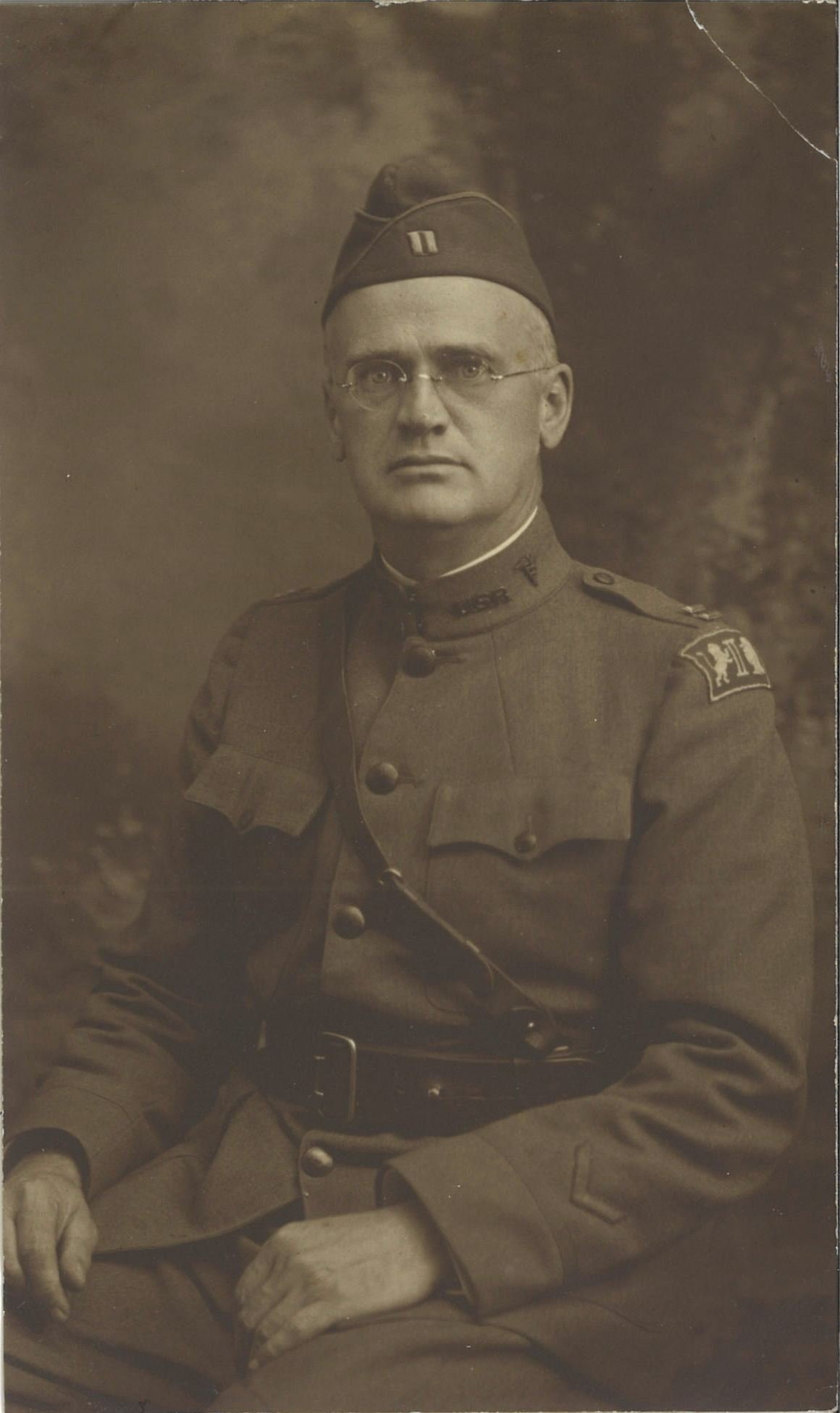Jacob Johnson Ross, M.D. and His Family
Jacob Johnson Ross was born in Huntington, Vermont on July 14, 1877, the only son of Austin H. and Catherine J. Ross. After attending public schools in Huntington, he entered the Montpelier Seminary with the Class of 1900, subsequently moving on to the Agricultural Department of the University of Vermont where he graduated in 1904. He then changed his course, entered medical school at UVM and received his M.D. in 1908.
It is here that he met his future wife, Hannah Elizabeth Holmes, who was born November 20, 1881 to Charles T. and Clara Russell Holmes of Charlotte, Vermont. She had attended Burlington High School and was class of 1906 at the University of Vermont, where she was elected to Phi Beta Kappa. Following graduation, she was a preceptress at Montpelier Seminary. A belief in serving humanity was a dominant goal for both of them. They were married on June 12, 1909.
After his internship at Mary Fletcher Hospital in Burlington, they moved to Richmond, Vermont, deferring their dream of going to China to serve as missionaries. Here Dr. Ross began his career as a general practitioner, while also serving as the town’s Health Officer. In 1913 he accepted a position as a member of the Physical Education Department at Syracuse University. Only two years later he took a new position as head of the Boy’s Hospital at the Berry Schools in Rome, Georgia. Driving there and back with the family was itself an adventure, with limited roads coupled with frequent mechanical breakdowns. In 1917, the family returned to Vermont when Dr. Ross was put in charge of Physical Education at Middlebury College.
Several months following the April 1917 entry of the United States into WWI, patriotism compelled Dr. Ross to serve his country and he secured a commission as Lieutenant in the Medical Corps. By then the couple had three children – Katherine, Ruth, and Austin. He could have easily avoided an active duty post. After a six-week training at Fort Greenleaf in Chickamauga, Georgia, he was shipped overseas in June 1918.
This was in a period when American airmen were being linked to seasoned British units for training and war experience. Dr. Ross was assigned to the 17th Aero Squadron of the Royal Air Force as of July 07, 1918. He provided medical care for the flyers and support staff of the 17th, but took the opportunity on rainy days, when flights were grounded, to help at nearby hospitals. The 17th was briefly assigned to a unit in the United States Air Force shortly before the Armistice in November, 1918. He visited sites of German prison camps, hospitals, continuing to care for the ill and as a tourist to French cities before being able to leave Europe for the U.S.
From his departure in June 1918 to his return to Vermont in March 1919, Dr. and Mrs. Ross were devoted correspondents, often daily. His letters were often delayed in reaching Middlebury because of censors and war conditions, and hers in reaching France due to the frequent relocations to new airfields by the 17th.
Dr. Ross was nearly 40 years old when he went to war. The pilots and support staff were much younger and his letters to Mrs. Ross demonstrate how the contrast affected him. He wrote frequently of his concern for the spread of syphilis and his medical lectures and counsel on the subject. He bolstered his determination to maintain fidelity to his wife and children by using the evenings to write home and to share with Mrs. Ross his love, his worries, and his efforts to exert a good influence on the younger men in his unit. Mrs. Ross wrote of caring for three children, her new oversight of the family finances, their respective extended families, with descriptions of the restrictions, sickness, and deaths caused by the Spanish influenza and the scarcity of medical doctors.
Only weeks after his March 1919 return to Middlebury, their middle daughter Ruth, age 5, died of bronchial pneumonia on April 06, 1919, often caused by the influenza,. Dr. Ross had left death on one continent, only to find it at home, but now could mourn with his beloved wife and two surviving children.
The letters exchanged between Dr. and Mrs. Ross, his military equipment, and the mementoes he brought back to Middlebury inspired and are central to the exhibit Doughboys and Flyboys: WWI Stories by Vermonters from the Home and Battlefront.






